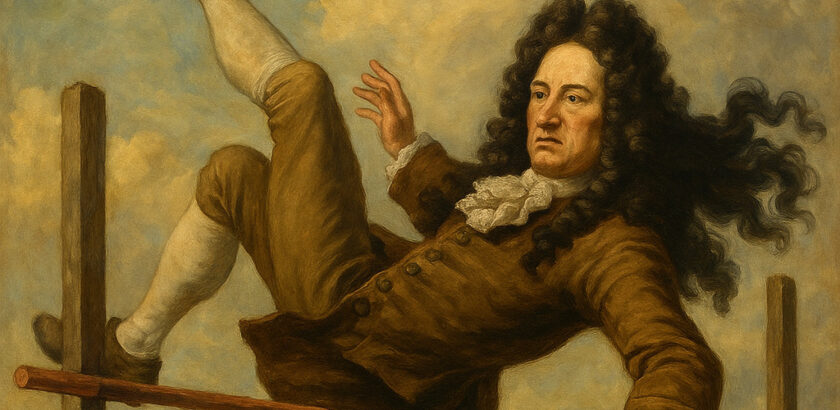Theodicy is not only the question about the problem of evil, but in a sense a manner of prosecuting that question. When Leibniz coined the term theodicy, he also effectively inaugurated a fundamental shift in the way in which this fundamental question is prosecuted.
The other day, a scholar whom I greatly respect challenged me on this claim that Gottfried Wilhelm Leibniz initiated a new era in the approach to theodicy. Leibniz coined the term, of course, but did he really invent theodicy as such? I argue that Leibniz began a distinct modern tradition that differs in kind from most earlier approaches to the question.
At first glance it may seem that if anything about Leibniz’s approach was novel, it was his “best of all possible worlds” thesis. I pointed out, however, that Leibniz’s thesis is not actually that different from medieval thought, which assumed that the world was justly ordered and governed in such a way as to accord with God’s goodness. So what exactly is novel about Leibniz?
The “best of all possible worlds” thesis is novel, even if it is not as starkly novel as some may think. What is really distinct about it is that it operates according to a strict, syllogistic logic rather than according to the idea of convenience. For the tradition, it is “fitting” that God created the world as it is; it is “fitting” that there be opportunities to overcome evil by way of good. Hence Brian Matz pointed out that many Patristic writers argue that the poor serve as an opportunity for the wealthy to exercise charity. This, of course, can easily go overboard into a justification of poverty, but let’s leave that for another day. The point is not that there must be poor people according to any strict requirement of divine goodness but only according to a logic of fittingness, which justifies solely post facto and not in any a priori sense.
In conjunction with this, secondly, Leibniz inaugurated a tradition of rooting the allowance of evil in a requirement of the divine nature rather than in any act of the divine will. It is not a matter of God’s permissive will, since such permission is demanded from the outset by God’s very divinity. That is, since God is the best, God must create the best, and thus we reason that this world is necessarily that best even mired as it is in the problem of evil. God does not really have any choice in the matter. Some later thinkers will bring back an element of divine choice by emphasizing a willful divine kenosis whereby God chooses weakness and letting-be, but such an approach still falls more within the tradition of Leibniz than that of most earlier Christian thinkers.
As part of its systematic bent, thirdly, Leibniz began a tradition of considering natural evil in the same frame and with the same causes as moral evil. Certainly many Patristic thinkers saw natural death as in some way mysteriously tied up with the Fall, but by and large they did not teach this in any systematic way. Aquinas even contradicts it, arguing that the death of animals is not the product of the Fall. Leibniz, however, influenced by the great earthquake in Lisbon, saw natural rather than moral evil as the primary concern of the project of theodicy. It is his explanation of natural evil that leads into the justification of moral evil—not the other way around.
We can say more about Leibniz’s novelty, but to be honest, all of the rest serves largely as a rehashing of these points. His all-encompassing system, formed on the basis of a metaphysics of pre-established harmony, is but an expression of syllogistic logic as it roots the allowance of evil within the divine nature. Optimism is the mood of this system, yet not all modern approaches to theodicy need be optimistic. Leibniz did more than forge a single system. He inaugurated a tradition.
